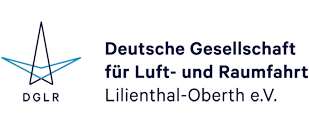DGLR-Publikationsdatenbank - Detailansicht
Autor(en):
G. Schuh, M. Spangenberg, Q. Zhang, B. Dannbeck, J. Stuerken
Zusammenfassung:
The development of new aircraft configurations with hybrid-electric propulsion reflects the high demand for sustainable aviation and for reduced travel times. The CleanSky 2 project ELICA (ELectric Innovative Commuter Aircraft) aims to propose a concept design of a 19-passenger commuter aircraft which uses hybrid-electric propulsion. This paper investigates whether such an aircraft could be economically feasible from an operators perspective. A new aircraft design involves certain risks in terms of market success, especially when new technologies such as hybridisation shall be included. Therefore, the operations and the impact of hybridisation of the aircraft are thoroughly analysed from an economical point of view. Starting with a brief overview of historic usage of 19-passenger aircraft, new market opportunities which are opening up are explored next. These consist of Regional Air Mobility (RAM), which promises highly reduced door-to-door travel times and thin-haul air cargo, which is aided by the rise of e-commerce and the steady growth of general air cargo demand. Additionally, favourable regulations can provide significant competitive advantage. Next, the direct operating costs (DOC) are examined in greater detail in the business case of the aircraft, relying on benchmark values or expert assessments for the single cost positions. Moreover, sensitivities of the business case are analysed, which range from average mission distance, across the average load factor over to fuel consumption. It can be shown that a hybrid-electric 19-passenger aircraft can be operated profitably with a profit margin of above 10 %. All assumptions are made conservatively as the aircraft uses future technology implying that greater profit is possible, if technology improves faster than currently expected or beneficial regulation is implemented. With regard to the impact of the Covid-19 pandemic, a solid tool to assess the economic feasibility of technology is even more valuable. The assessment however was conducted without taking the impact of a global health crisis on the travel industry into account. The prognosed numbers might occur delayed, at least until travel recovers to prepandemic levels.
Veranstaltung:
Deutscher Luft- und Raumfahrtkongress 2020
Verlag, Ort:
Deutsche Gesellschaft für Luft- und Raumfahrt - Lilienthal-Oberth e.V., Bonn, 2021
Medientyp:
Conference Paper
Sprache:
englisch
Format:
21,0 x 29,7 cm, 9 Seiten
URN:
urn:nbn:de:101:1-2021050512310051052414
DOI:
10.25967/530307
Stichworte zum Inhalt:
Hybrid Aviation, Business Case
Verfügbarkeit:
Download
- Bitte beachten Sie die Nutzungsbedingungen dieses Dokuments: Copyright protected
Kommentar:
Zitierform:
Schuh, G.; Spangenberg, M.; et al. (2021): Economic Feasibility Study of a Hybrid-Electric 19-Passenger Commuter Aircraft. Deutsche Gesellschaft für Luft- und Raumfahrt - Lilienthal-Oberth e.V.. (Text). https://doi.org/10.25967/530307. urn:nbn:de:101:1-2021050512310051052414.
Veröffentlicht am:
05.05.2021
